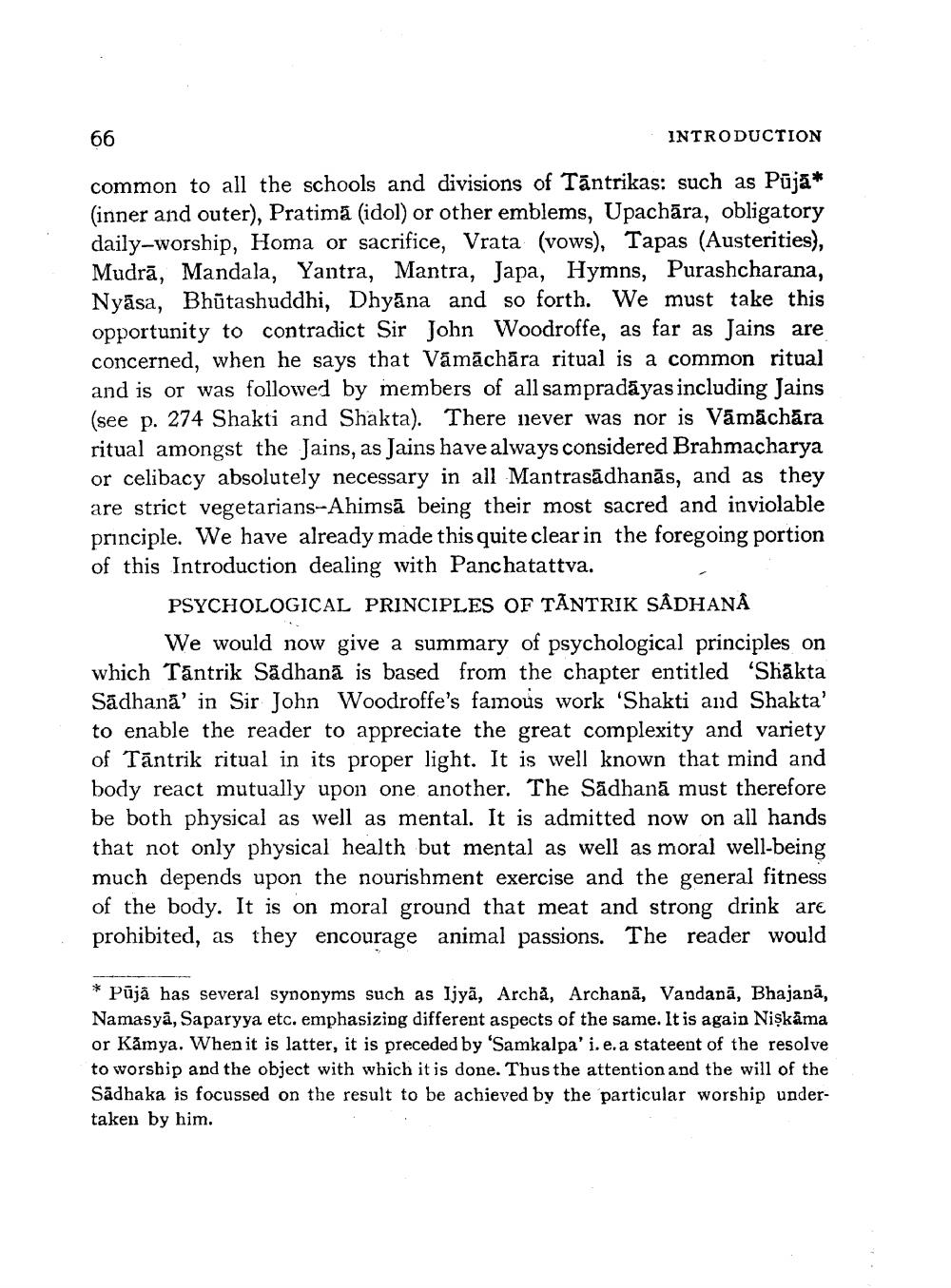________________
66
INTRODUCTION
common to all the schools and divisions of Tāntrikas: such as Pūjā * (inner and outer), Pratimā (idol) or other emblems, Upachāra, obligatory daily-worship, Homa or sacrifice, Vrata (vows), Tapas (Austerities), Mudrā, Mandala, Yantra, Mantra, Japa, Hymns, Purashcharana, Nyāsa, Bhūtashuddhi, Dhyāna and so forth. We must take this opportunity to contradict Sir John Woodroffe, as far as Jains are concerned, when he says that Vámáchára ritual is a common ritual and is or was followed by members of all sampradāyas including Jains (see p. 274 Shakti and Shakta). There never was nor is Vāmāchara ritual amongst the Jains, as Jains have always considered Brahmacharya or celibacy absolutely necessary in all Mantrasādhanās, and as they are strict vegetarians-Ahimsā being their most sacred and inviolable principle. We have already made this quite clear in the foregoing portion of this Introduction dealing with Panchatattva.
PSYCHOLOGICAL PRINCIPLES OF TANTRIK SÅDHANA
We would now give a summary of psychological principles on which Tantrik Sadhanā is based from the chapter entitled 'Shakta Sādhana' in Sir John Woodroffe's famous work 'Shakti and Shakta' to enable the reader to appreciate the great complexity and variety of Tantrik ritual in its proper light. It is well known that mind and body react mutually upon one another. The Sadhanā must therefore be both physical as well as mental. It is admitted now on all hands that not only physical health but mental as well as moral well-being much depends upon the nourishment exercise and the general fitness of the body. It is on moral ground that meat and strong drink are prohibited, as they encourage animal passions. The reader would
* Pūjā has several synonyms such as ljyā, Archa, Archanā, Vandanā, Bhajanā, Namasyā, Saparyya etc. emphasizing different aspects of the same. It is again Nişkāma or Kamya. When it is latter, it is preceded by 'Samkalpa'i.e. a stateent of the resolve to worship and the object with which it is done. Thus the attention and the will of the Sadhaka is focussed on the result to be achieved by the particular worship undertaken by him.




